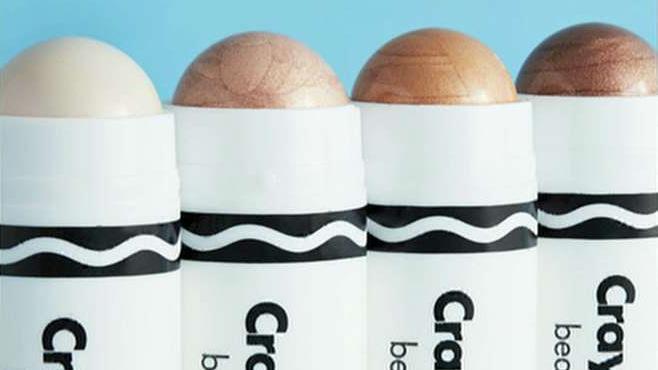'Makeup no makeup' shifting cosmetics industry to skincare focus
A fresh dewey face is shaking up the beauty landscape.
One of the leading cosmetics retailers in the U.S., Ulta Beauty, has felt the impact of customers' changing beauty demands. When the personal care company’s stock fell 29 percent at the end of August, Ulta’s Chief Executive Officer Mary Dillon revealed a lack of innovation in the beauty industry and a shifting consumer base as factors that hurt makeup sales.
Stocks In This Article:
“After several years of very strong performance, growth in the makeup category has been decelerating over the last two years for recently turned negative. Based on the latest track data the cosmetics category in the total U.S. market has experienced mid single-digit declines through the first six months of 2019 and has been more volatile in recent weeks,” Dillon told shareholders in Ulta’s second quarter earnings call.
She went on to add, “Over the past several years, we've seen strong growth in cosmetics driven by new rituals and application techniques like contouring and brow styling and innovative new product formats like Liquid Lip, Palette and Minis. This innovation resulted a new makeup routines requiring new products, which drove strong incremental growth.”
However, with more and more consumers embracing their natural beauty and prioritizing clean living and wellness, there aren’t enough makeup trends to encourage sales.
Add in celebrity movements led by singers like Alicia Keys - many makeup users are foregoing a morning makeup routine.
In contrast to makeup’s decline, the skincare category has grown exponentially thanks to the rise of natural beauty. What was once driven by mature shoppers wishing to turn back the clock with serums and antiaging aging topicals has now expanded to the younger generations who are trying preventative measures – whether it be for acne, dullness or fine lines.
Stocks In This Article:
According to L'Oréal’s 2018 Annual Report, skincare accounted for 39 percent of the whole beauty market while makeup accounted for 19 percent. Moreover, the skincare market grew approximately by nine percent in 2018. Based off of L'Oréal’s records, this is a three percent increase from 2017 and a 5.6 percent increase from 2016.
L'Oréal also broke down this non-makeup market into four key categories: Facial skincare, face cleansers, body care and sun protection.
In the report’s own words, “The skincare market accelerated sharply in 2018, boosted by the expansion of the upper middle classes all over the world and especially in Asia, where consumers are both knowledgeable and enthusiastic about this category.”
Skincare’s growing hold on the market has contributed to the birth of a new industry as well – fast beauty.
The INKEY List, which only launched last year, is one industry disruptor that has made it to Sephora shelves as a prestige brand with drug store price points. The Instagram famous makeup line ColourPop Cosmetics launched its skincare-focused sister brand Fourth Ray Beauty in the same period.
Stocks In This Article:
Elf Cosmetics, who closed all its brick and mortar locations in February, has expanded its “Eyes. Lips. Face.” moniker to include a revamped skincare category of its own online. Even ecommerce giant Amazon has leaned into the trend earlier this year with an exclusive partnership with Fast Beauty Co., a skincare collection that’s aiming to take a swipe at cosmetic dollars.
Just like fast fashion, the keys to fast beauty include rapid product launches, social media prowess, scarcity, hype and budget-friendly pricing – all of which encourage shoppers to place orders and live in excess so they don't risk missing out.
Despite skincare’s takeover, makeup hasn’t been killed off. Trends have indicated that there are a fair amount of people who have pared down their extensive routines and blurred the lines of makeup and skincare with “no makeup” makeup looks.
The desire to look like one has just rolled out of bed looking flawless has helped some cosmetic brands rake in fortunes with their light coverage product lines.
Glossier, which was founded in 2014 by Vogue styling assistant turned entrepreneur Emily Weiss, reached its $1.2 billion company valuation in March, according to the Wall Street Journal. The minimalistic, direct-to-consumer beauty brand employs an advertorial business model with its namesake cosmetics line and blog Into The Gloss, which has become a smash hit due to its promise to “never cover you up, turn you into someone else, or overcomplicate your routine.”
Models at Glossier sport bare faces or sheer foundation that lets their real skin shine through, and if Glossier’s numbers are anything to go by, the message has really resonated with the market.
GET FOX BUSINESS ON THE GO BY CLICKING HERE
Similar tactics have been used with hip brands like the teen-founded “touch n go” makeup crayons known as Nudestix and the studio-founded, photo-friendly cosmetics line known as Milk Makeup.
During Ulta’s earnings call, the company cited strategic influencer partnerships as the makeup category’s saving grace. Celebrities like Kim Kardashian and Kylie Jenner have bolstered prestige sales with their cosmetic lines while third-party brands who partner with digitally famous personalities have also provided a boost.
According to Fast Company, Ulta’s multinational competitor Sephora has also used the same tactic to boost sales with its exclusive influencer program Sephora Squad.




















